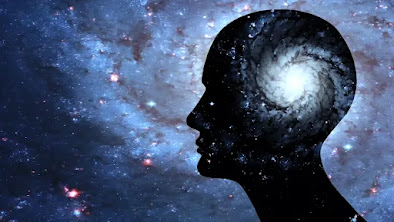Consciousness is a phenomenon which has intrigued numerous people for a long time. With advent of artificial intelligence, scientists are debating on what consciousness really is. It is defined as the awareness of individual existence, their surroundings, thoughts, memories, and feelings. Complex biological systems like human brains can make us conscious. The question arises if other animals and trees are conscious? Can computers ever be conscious? Is consciousness embedded in the fabric of our universe? These are some of the mind-boggling questions which push the limit of human understanding of the universe. People are intrigued to understand the unknowns of our universe. These questions are mostly unknown, and we can only extend our understanding by collectively looking into it from physics, neurological, and philosophical standpoint.
Majority of academics believe that consciousness arises in certain complex biological and chemical systems like the human brain. They believe individual neurons are not conscious, but 86 billion neurons collectively make a conscious being. Now, this belief raises the question if much simpler life forms like plants, bacteria, and fungi are conscious or not. This is indeed a grey area where some scientists believe that they are, while some others argue that they are not. Scientists who believe that simpler life forms are also conscious make the point that bacteria make intelligent decisions based on their sensing mechanism regarding survival, food, and reproduction. Scientists who believe otherwise claim that any living form which lacks nervous system cannot be conscious. Clearly, bacteria don't have thoughts or feelings, but they seem to be aware of their surroundings in their way.
Panpsychism is the view that everything material has an element of individual consciousness. Philosopher David Chalmer said in a TED talk that photons might have some element of raw consciousness. His claim can be linked to the famous double slit experiment where light demonstrates both particle and wave behavior based on whether someone is recording its behavior or not. This change in behavior of light is perhaps the biggest mystery of quantum mechanics. Particles having electric charges tend to attract or repel another particle based on their polarity. This attraction or repulsion can be treated as a basic consciousness. Neuroscientist Giulio Tononi is a supporter of panpsychism and he came up with a mathematical model that can measure the consciousness of a system. He asserted that more information a system processes, higher its consciousness is. Humans have more complicated brain and therefore processes more information compared to a mouse. Therefore, humans are more concious than a mouse and likewise a unicellular bacterium is least concious among all three.
There are some scientists against panpsychism and claim that consciousness is only restricted to complex systems and not universally available. However, if you look critically into double slit experiment, mice, and bacteria there is definitely a non-zero level of consciousness. Non-biological entities, like stones may seem inert from a human lifespan, but they do evolve in a cosmic timeframe. Looking at a stone or a planet for millions of years will reveal how they evolve over time and appear as if they are part of a ubiquitous conscious being. The current definition of conciousness is tailored for human beings and doesn't account for non-biological entities.

Comments
Post a Comment